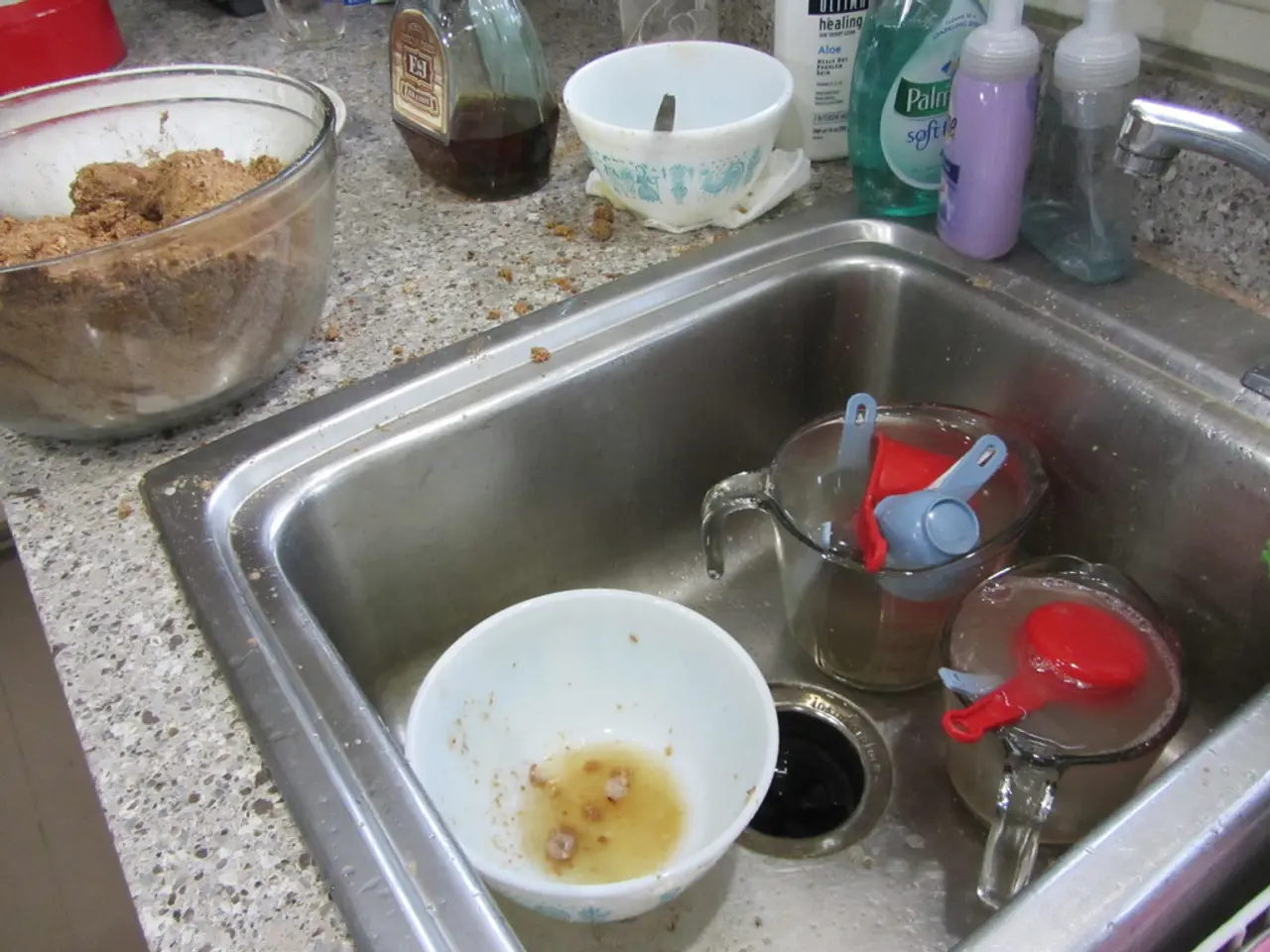The Connection Between Probiotics and Skin Health
In the realm of skincare, a new wave is emerging, focusing on the skin microbiome. This intricate ecosystem is being harnessed by manufacturers, who are incorporating specific probiotic strains into their products.
Leading the charge is Lactobacillus rhamnosus, with strains like LB21 and SP1, which are particularly effective for conditions such as atopic dermatitis. Lactobacillus paracasei is another key player, providing relief for those suffering from seborrheic eczema. Additionally, lysates or extracts from bacteria like Vitreoscila filiformis are being utilised, all with the aim of balancing beneficial bacteria on the skin, protecting against harmful ones, and improving overall skin health and inflammation symptoms.
However, it's not just probiotics that are making a splash in the skincare world. Prebiotics, nondigestible compounds that feed and nourish good bacteria and keep bad bacteria in check, are also gaining traction. These compounds can be used orally or topically, and while there has been less peer-reviewed scientific research on topical prebiotic products, they hold promise for balancing skin pH and supporting the skin's barrier function.
Richard Gallo, MD, PhD, a distinguished professor and the founding chairman of the department of dermatology at the University of California, San Diego, is a leading researcher in the skin microbiome. According to Gallo, applying a probiotic or prebiotic on the skin is the most direct and effective way to affect the skin's microbiome. He explains that when you use a common moisturizer and your skin becomes less dry and red, "your microbiome is improving."
Mary-Margaret Kober, MD, FAAD, a board-certified dermatologist in Denver, Colorado, also researches the skin microbiome. She notes that the lipids in moisturizers could support the skin's barrier function and may help healthy bacteria grow. This is supported by a study that suggests certain prebiotics can help balance skin pH or support the skin's barrier function.
The benefits of these microbiome-focused skincare products are far-reaching. Certain probiotics have been shown to boost the skin's production of ceramides, which trap moisture in the skin and keep acne-causing bacteria levels in check. Studies suggest that applying probiotic skin care products may reduce acne outbreaks and help heal eczema. In fact, a 2016 review indicates that probiotics can help maintain skin's pH, reduce oxidative stress, reduce the effects of sun damage caused by UV light, improve the skin's moisture barrier, and enhance hair quality.
Moreover, probiotics may also help reduce the risk of skin cancer. This is a promising finding, as skin conditions like rosacea and atopic dermatitis can weaken or impair the skin's barrier function. By strengthening this barrier, probiotics and prebiotics could potentially prevent or alleviate these conditions.
Prebiotics, in particular, have been suggested to decrease the risk of developing allergic skin diseases like eczema and improve the skin's barrier function. This aligns with the definition of prebiotics as "anything used to shape the [microbial] environment and change it in a way that promotes health."
In conclusion, the world of skincare is evolving, with a growing focus on the skin microbiome. By harnessing the power of probiotics and prebiotics, manufacturers are offering innovative solutions to common skin conditions, from acne to eczema, and even potentially reducing the risk of skin cancer. As research continues to grow in this area, we can expect to see even more exciting developments in the future of skincare.
Read also:
- Ebola Virus and Its Related Disease: An Overview
- Latest Updates on Unresolved Aspects of the Deleterious Legionnaires' Outbreak in NYC, Prior to the Scheduled Hearing
- Sleepless Nights: Anxiety, Stress, and Too Much Caffeine as Potential Root Causes
- Lawyers for the deceased Greek heiress's family, age 28, intend to file a lawsuit against two UK hospitals due to reportedly denying her treatment after an alleged insect bite led to her unfortunate demise.





